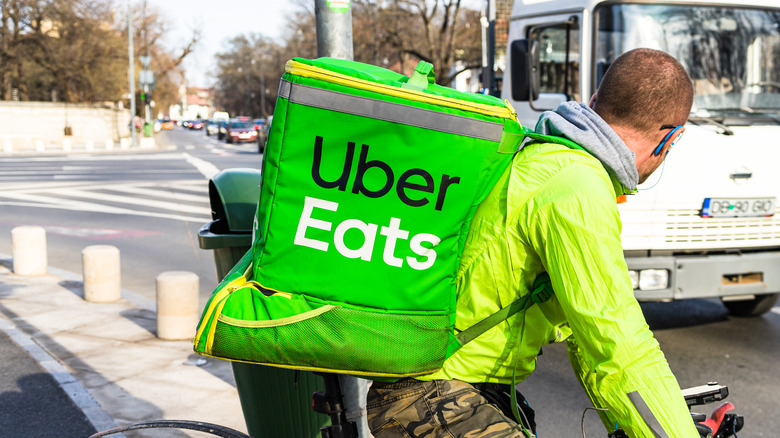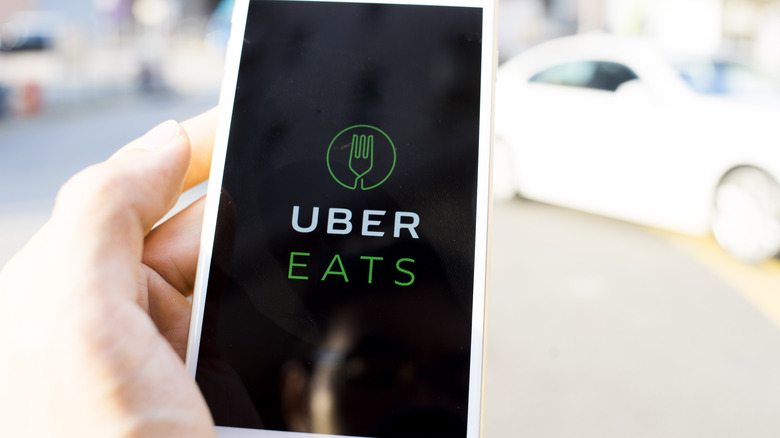Uber Eats Will Exit Italy And Israel Over Fierce Competition
Uber Eats may be a lot of Americans' go-to app for food delivery, but according to Reuters, the tech giant hasn't been doing as hot in other parts of the world, namely Italy and Israel. While food delivery still makes up a small fraction of the overall food market in Europe, it has been expanding quickly, reaching a market value of over $95 billion in 2022, with a predicted double-digit growth rate over the coming decade. Uber Eats has fought to carve out a share of that market, capitalizing on its already existing ride-share service on the continent. While the company has seen success in becoming one of the largest food delivery providers in the region, local competition has been fierce, and now Uber Eats has abandoned Italy and fellow Mediterranean nation Israel, citing its small market share.
According to a spokesperson for Uber Eats, the company wants to "focus on markets where [it] has opportunities for sustainable growth." In Italy, Uber Eats was running behind European food delivery giant Just Eat, who acquired GrubHub in 2021, and another service known as Glovo. The company was lagging behind two others in the Israeli market as well. The move follows CEO Dara Khosrowshahi's statement that Uber Eats is only interested in remaining in markets where it can be the first or second largest company. The decision will result in thousands of lost jobs for delivery drivers and contractors, although Uber has no plans to leave the Italian ride-share market.
Uber Eats has withdrawn from many countries in the past five years
Uber Eats has seen success in other European countries, particularly larger markets in Western Europe. It's the leading food delivery app in France and has seen a year-to-date growth of over 64% in Germany. Still, it's lagging behind competitors in the U.K. and Spain, and even in some of the countries where it's growing, it has a long way to go to catch up to competitors.
Uber Eats hasn't fared well in markets east of Isreal in recent years either, selling its entire operation in China in 2016 and, four years later, doing the same in India. While Uber Eats can claim some credit for giving the world a taste of any time, on-demand food delivery, it hasn't been as deft as others in certain markets.
The newest examples of Italy and Isreal seem to suggest that, while the company's goal is expansion and market penetration, it's learning to cut its losses earlier rather than later. And while Uber was a leader in this space, the window for market share closes quickly. Though, as we cited, it's not been all bad news in Europe, it's worth remembering that Uber Eats's parent company Uber has yet to have a year where it's turned a profit. While major stake- and stockholders for the company might trade growth for profits for now, the company's viability as a business can't be theoretical forever.

